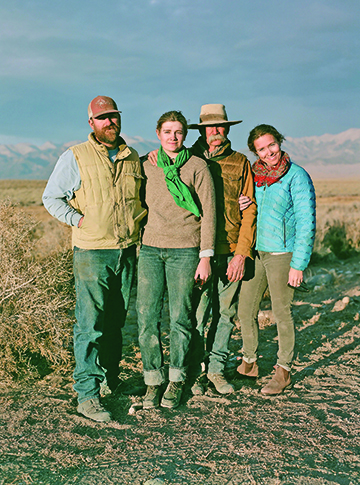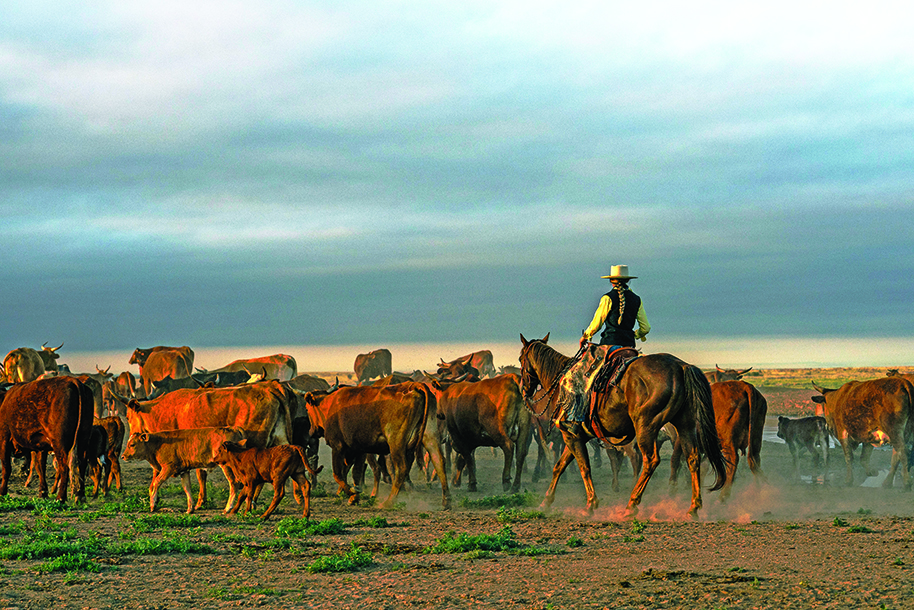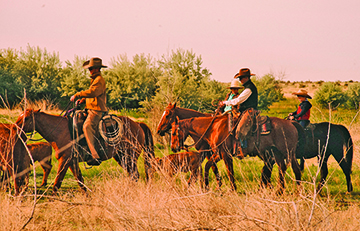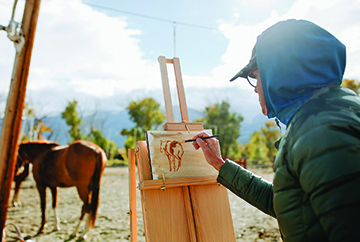by Jessica Hughes
A recent decision by the Colorado Land Board to not renew a 25-year lease at Chico Basin Ranch has left a favorite Colorado family without a home for them or their cattle.
Located just southeast of Colorado Springs, the Chico Basin Ranch spans 86,000 acres of short-grass prairie and has been held in a trust for the good of Colorado’s K-12 schools. The land is leased and managed by Ranchlands, a family-ranching business run by Duke Phillips III and his children. They operate large-scale cattle and bison ranches in the American West and partner with conservation-minded owners to implement conservation programs that work alongside their ranching operations, all while preserving the ranching legacy.
The lease between the Colorado Land Board and the Phillips family business is due to expire at the end of this year. According to the Colorado Department of Natural Resources, “to prepare for the expiration of the lease, the State Land Board evaluated different leasing scenarios that would achieve the goals of the School Trust to earn revenue and maintain exceptional stewardship.”

The Phillips Family: Duke Phillips IV, Madi Phillips, Duke Phillips III, and Tess Leach. Photo credit: Parker Fitzgerald and Ranchlands
To evaluate available options, the agency hosted 11 public meetings over 18 months and issued a competitive request for proposals. In November 2023, the Colorado Land Board decided to lease the land to another ranching operation that outbid Ranchlands by a hefty amount, despite Phillips and his family pleading with the board to consider more than just money for the new 10-year lease.
In this case, money spoke the loudest and the Phillips family was out-bid by a lot. Ranchlands offered 25% over asking and the new lessee offered 75% over.
“We offered a fair and consistent revenue for the renewed lease,” says Tess Leach, Duke’s daughter, and Head of Business Development at Ranchlands. “We thought that they would value our operations and the impact we had on the community over money.”
In this situation, it appears that money won, begging the question, what is the purpose of the Colorado State Land Board? As the second-largest landowner in Colorado, with 2.8 million surface acres and 4.0 million mineral estate acres, the board states its mission is “to produce reasonable and consistent income over time, and to provide sound stewardship of the state trust assets.”
Thus, the board has a mission to not accept the highest bid for a lease, which they just did, or accept profitable, yet damaging uses for the land it owns. State lands are leased for many different reasons, some of which Ranchlands won the bid for 24 years ago, including recreation, cattle grazing, and hospitality.
During their long-standing lease, Ranchlands was proud to provide a variety of educational programs, recreational activities, ranch stays, art shows, concerts, creative writing workshops, roping, and photography classes at Chico Basin Ranch for the community to enjoy. And to help the next generations of ranchers take hold, the Phillips also offered an apprenticeship program that helped train young ranchers with real-world experience, plus learn about ranching and conservation.
One of Ranchland’s most successful programs is the bird-banding station that they instituted — the oldest in Colorado. Because the Chico Basin Ranch is one of the largest uninterrupted stretches of prairie left in the United States, the ranch is known as one of the prime locations in Colorado for birding. In partnership with the Audubon Society and Bird Conservancy of the Rockies, the ranch maintains a bird banding station where visiting biologists band hundreds of migratory birds and is open to the visiting public to help assist in this process.
However, these programs face an uncertain future as the lease nears its expiration. According to Phillips, the new lease agreement lacks any provisions for public recreational access, implying that the land will be off-limits to the community starting in 2025. This reality threatens to dismantle the programs and initiatives that Phillips and his family have painstakingly cultivated over the years.
Phillips describes this as a huge loss for the Front Range of Colorado. “We have always had an open gate policy for people to come in and look at the ranch and enjoy it with hiking, tours, and other activities,” says Phillips. “Our biggest legacy at the Chico, is the community we have built. This is what we are most sad to be leaving behind.”
“I don’t think the land board values the community component as much as they do about money,” says Duke. “If we continue to value money over community, ranching will become a thing of the past if we don’t recognize the importance of conservation and community.”
Despite this devastating loss, the Phillips family is determined to continue its efforts to bridge the divide between rural and city communities. “People are becoming more and more isolated from nature,” says Phillips. “It has become a focus for us to try and bridge the gap between urban and rural communities.” Because of this, Ranchlands has initiated The Collective, a new organization focusing on developing a model, that sees ranching as an alternative to large-scale conservation in the U.S. The first-of-its-kind, a Collective membership will grant those who join a deeper access to Ranchlands and their mission of perpetuating ranching into the future with exclusive events, conversations, and experiences on working landscapes.
“This will only happen if we do it together,” says Phillips. “We can’t do it alone as ranchers and we will all have to come together to make this happen.”
Phillips and his family are on a mission to create a grassroots movement where the short-term gain of money isn’t the objective, and the long-term vision for the land is. “The whole idea of land being treated as a commodity that is bought and sold, is a foreign concept to someone like me as someone who lives on it, tries to take care of it, and use it,” says Phillips. “We want to start a revolution with The Collective that protects the land through ranching and not money and transactions.”
The Phillips family will soon leave Colorado and make a new home at Paint Rock Canyon on the west side of the Bighorn Mountains, in Wyoming. But the biggest challenge right now is finding another ranch to which they can move their cattle. While the family’s challenges are far from over, they are hopeful for the next chapter and the continued ability to uphold and share the legacy of ranching with the next generation.
“Life gives you a lot of bends and turns in it. We’re going to take the lumps and move forward and see where we land,” says Phillips. “But we are looking at the other side of it all and are thankful to have lived there. We are very appreciative of our time at Chico Basin Ranch.”
For more information, visit them at Ranchlands.com.



